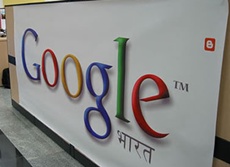CCI slaps Rs136-cr fine on Google for search manipulation
09 Feb 2018
The Competition Commission of India (CCI) has slapped a fine of Rs135.86 crore on Google, the world's largest web search engine, for abusing its dominant position by preventing its Indian partners from using similar services provided by competing search engines.
 The penalty was calculated at the rate of 5 per cent of the average total revenue that Google generated from the different business operations in the 2013, 2014 and 2015 financial years.
The penalty was calculated at the rate of 5 per cent of the average total revenue that Google generated from the different business operations in the 2013, 2014 and 2015 financial years.
CCI, in a split 4-1 verdict, directed Google to pay the penalty of $21.2 million within 60 days. Google had reported revenues of $77.78 billion worldwide in 2017.
The commission also ordered Google not to impose restrictive clauses with immediate effect in these agreements.
The appellants - Consim Info Private Ltd (now known as Matrimony.com Ltd) and the non-profit, non-government organisation Consumer Unity and Trust Society (CUTS) - contended that Google's dominance in the algorithmic search market "leads to its status as an unavoidable partner in the search advertisement partner".
The appellants had said Google also provided a large number of vertical search services including video (YouTube), news (Google News) and maps (Google Maps).
They claimed that Google's own sites would appear on search result pages irrespective of whether they were the most popular or relevant sites.
The charge against Google was that its algorithm calculates an advertiser's quality score, which forms the basis of where an advertisement appears. And that quality score also forms the basis for "placing Google's vertical properties towards the top of the search results page."
CUTS's charge against Google was that it was abusing its dominant position in the market for online search. It was accused of indulging in abusive practices leading to "search bias, search manipulation, denial of access to competing search engines, refusal to license content to competing search engines and creation of entry barriers".
CCI had ordered an investigation into the case by the director-general of investigations. The investigation has determined that Google operated in two distinct markets - online general web search services, and relevant market of online search advertising. It enjoyed a dominant position in both markets and was able to establish itself as a "critical platform for all stakeholders".
The investigation showed that Google integrates or blends its own specialised / vertical search services in its online general web search services in the form of "universal results and commercial units" using mechanisms that do not apply in an equivalent manner to non-Google websites or web content.
The DG has found Google to be abusing its dominance in the online search advertising market by imposing unfair condition on the trademark owners (particularly those who have notified their trademarks to Google) by allowing their trademarks to be bid as keywords by third parties in online search advertising.
As per the AdWords mechanism, ads which appear first may not be the most relevant for the users and may appear at that position due to the higher bid of the entity.
The competitors then get opportunity to free ride on the goodwill and brand value of the trademark owner, thereby hampering fair competition.
Moreover, this practice creates a significant risk of causing confusion and deception in the minds of the users thereby causing consumer harm.
Unsuspecting consumers may be misled to believe an association between the owner of the trademark and its competitors (whose ad appear in response to searches on their brands) and divert traffic. In such a scenario, the owner of the trademarks is compelled to participate and outbid competitors (for their ads to appear before them) thereby augmenting their advertising budgets.
The DG has further noted that there is scope for Google to use the system in a discriminatory manner and ensure that its own trademarks are not subject to the same unfair conditions as those of third parties, while bidding under AdWords.
Lastly, the DG has noted that though Google's AdWords policy restricts usage of notified trademarks in the Ad text of competitors, on various occasions, ads of competitors appeared using Consim's trademarks in Ad text in response to searches on these trademark terms despite notification.
Google offered its own specialised search features (commercial units and universal results) at prominent ranks or positions in the Search Engine Results Page (SERP). The top results receive higher user attention and are critical for online visibility.
While Google steered users to its own products and services, it was found that users might not receive the most relevant results. This was found to be anti-competitive behaviour.
The DG also recorded that Google was not required to pay any monetary consideration for its house ads, which gave it an additional competitive edge.
It was determined that by leveraging its strengths, Google was causing direct harm to other websites which were moved down the SERP, which meant they received fewer clicks as a result of lessened traffic.
The European Union had, in July last year, slapped a record $2.7-billion fine on Google for manipulating search results in a manner that gave it illegal advantage.



















